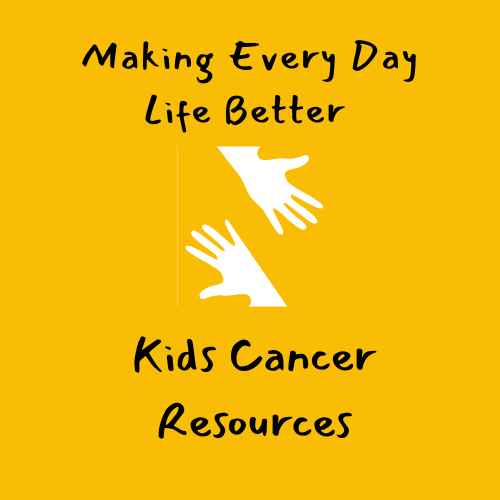Understanding What a Clinical Trial Entails
Participating in a clinical trial can be a hopeful path when conventional treatments have limitations. A clinical trial is a research study designed to evaluate medical, surgical, or behavioral interventions. It is intended to answer specific health questions and determine the safety and effectiveness of new treatments or therapies. For parents, understanding the fundamentals of clinical trials is crucial before deciding if this option is right for their child.
Clinical trials follow rigorous protocols and typically progress through phases, starting with small groups of participants and expanding as safety and efficacy are confirmed. The primary goal is to improve health outcomes while ensuring participant safety through strict monitoring and ethical oversight.
Types of Clinical Trials Relevant to Children
– Treatment trials test new interventions or drugs to improve a child’s health condition.
– Prevention trials focus on strategies to prevent diseases or conditions from developing.
– Diagnostic trials explore new ways to diagnose health issues earlier or more accurately.
– Screening trials seek better methods to detect diseases when symptoms are not yet apparent.
Each trial type has a unique purpose but shares the common goal of advancing pediatric care.
Assessing the Benefits of a Clinical Trial for Your Child
Enrolling your child in a clinical trial offers potential advantages that could improve their health and contribute to scientific knowledge. Here are some of the key benefits to consider:
– Access to cutting-edge treatments not yet widely available.
– Comprehensive medical care with regular monitoring by a team of experts.
– Contribution to pediatric research that may benefit other children in the future.
– Close follow-up that can help detect side effects or complications early.
Additionally, some trials may offer support with travel expenses or provide treatment at no cost, which can ease financial burdens.
Real-Life Success Stories
Families have reported that clinical trials have helped discover effective treatments for chronic conditions such as asthma, cystic fibrosis, and childhood cancers. For instance, advances in leukemia treatment largely stem from pediatric clinical trials conducted worldwide.
Potential Risks and Considerations
While clinical trials aim to maximize benefits, it is essential to understand potential risks and challenges:
– Unknown side effects due to new or experimental therapies.
– Time commitment for appointments, treatments, and follow-ups.
– Possible placebo assignment, meaning the child might not receive the active treatment.
– Emotional and physical stress associated with frequent hospital visits or invasive procedures.
Before enrolling, parents should weigh these factors carefully and discuss concerns with healthcare providers.
Safety and Ethics in Pediatric Trials
Clinical trials involving children are subject to stringent ethical standards and regulatory oversight. Institutional Review Boards (IRBs) review study protocols to ensure safety and that risks are minimized. Informed consent must be obtained not only from parents but also assent from children when appropriate. These measures help protect the welfare of young participants.
How to Determine If a Clinical Trial Is Suitable for Your Child
Choosing whether a clinical trial is right for your child requires thoughtful consideration and information gathering. Here are practical steps to help you make an informed decision:
1. Consult with your child’s primary doctor and specialists about the trial’s relevance to your child’s condition.
2. Review the trial’s protocol, including objectives, procedures, potential risks, and benefits.
3. Ask specific questions: What are the alternative treatments? How will your child’s safety be monitored? What happens if your child experiences side effects?
4. Consider your family’s ability to commit to the trial schedule and requirements.
5. Discuss your child’s willingness and comfort with participating.
6. Seek a second medical opinion if uncertain.
Finding Clinical Trials
Reliable resources like ClinicalTrials.gov provide searchable databases where parents can find ongoing trials specific to pediatric conditions. Hospitals, universities, and advocacy organizations also often have information about clinical trial opportunities. Connecting with patient support groups may provide insights from other families’ experiences.
What to Expect During a Clinical Trial
Understanding the trial process can help prepare families and children for what lies ahead. Typical phases involve:
– Screening and enrollment to assess eligibility.
– Baseline assessments to understand your child’s current health status.
– Administration of the experimental treatment or intervention.
– Regular follow-up visits for monitoring effectiveness and safety.
– Reporting side effects promptly to the research team.
Parents remain central participants in all decisions and can withdraw their child at any time without penalty.
Support and Resources During Participation
Many trials offer resources such as counseling services, educational materials, and coordination assistance. Staying informed and connected with the research team fosters a supportive experience and ensures concerns are addressed swiftly.
Balancing Hope and Reality: Making the Best Choice
Deciding if a clinical trial is right for your child involves balancing hope for new treatments with realistic expectations. While clinical trials have led to remarkable breakthroughs in pediatric medicine, no treatment is guaranteed to work for every child.
Focus on:
– Open communication with healthcare providers and the research team.
– Evaluating your child’s quality of life throughout participation.
– Keeping your child’s best interests at the forefront of every decision.
– Involving your child in age-appropriate ways to respect their feelings and autonomy.
Remember, participation is voluntary and should never feel like the only option available.
For more information about clinical trials and personalized guidance, you can visit khmuhtadin.com to connect with experts who can help you navigate this complex decision.
Finding out if a clinical trial is right for your child takes time, patience, and access to trustworthy information. By carefully weighing the benefits and risks, consulting with healthcare professionals, and considering your family’s unique circumstances, you can make the best decision to support your child’s health journey. Don’t hesitate to reach out to trusted sources and professional advisors to explore this promising avenue for care.




